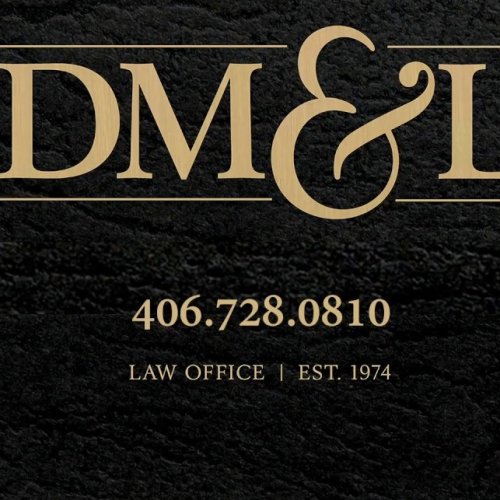Best Marriage Lawyers in Hamilton
Share your needs with us, get contacted by law firms.
Free. Takes 2 min.
Free Guide to Hiring a Family Lawyer
List of the best lawyers in Hamilton, United States
About Marriage Law in Hamilton, United States
Marriage law in Hamilton, like in the rest of the United States, is principally governed by state law. Every state, including Indiana (in which Hamilton is located), has its own distinct set of laws regulating areas such as marriage age requirements, legal capacity to marry, blood tests, solemnization requirements, marriage licenses, and more. Additionally, laws around divorce, child custody, and spousal support may also come into play for those considering marriage legalities.
Why You May Need a Lawyer
Known for their expert understanding and interpretation of the law, lawyers can be of great help in navigating the complex legal landscape of marriage. They can assist in prenuptial or postnuptial agreements, steer through a divorce process, or help understand rights at the end of a spouse's life. Other predicaments where legal assistance could be needed include cases of family violence, disputes over custody and child support, or instances where one's marital status impacts their immigration status.
Local Laws Overview
The local laws in Hamilton, Indiana, dictate that both parties in a marriage must be at least 18 years old, or 16 with parental consent. Blood tests are not required, and marriage licenses are valid for 60 days only in Indiana, including Hamilton. Indiana law provides for no-fault divorces on the grounds of an 'irretrievable breakdown' of the marriage, but can also consider instances of felony, impotence at the time of the marriage, and insupportable living conditions.
Frequently Asked Questions
Do I need a legal resident status to get married in Hamilton?
No, there is no requirement for legal residency to get married in Hamilton, Indiana.
Is same-sex marriage legal in Hamilton?
Yes, same-sex marriages are legal everywhere in the United States, including Hamilton, Indiana.
What if I want a prenuptial or postnuptial agreement?
Indiana law allows for the creation of prenuptial or postnuptial agreements, provided they meet legal standards. A lawyer can assist in drafting an agreement that protects your interests.
What are the grounds for divorce in Hamilton?
Divorces in Hamilton can be provided for an 'irretrievable breakdown of the marriage'. However, they can also be awarded in case of a felony conviction, impotence at the time of the marriage, or if one spouse finds the conditions unendurable.
How is child custody decided in Hamilton?
Like the rest of Indiana, Hamilton uses the 'best interests of the child' standard for determining child custody issues. Considerations include the child's age, health, relationship with each parent, the child's wishes, and more.
Additional Resources
For further assistance with marriage legalities in Hamilton, consider reaching out to local legal organizations or visiting local law libraries. The Hamilton County clerk's office can provide information about marriage licenses and requirements, and the Indiana State Library provides a wealth of resources for researching specific legal questions.
Next Steps
If you need legal assistance in matters related to marriage in Hamilton, you can engage a local attorney who specializes in family law. They can provide you with tailored advice that considers all aspects of your situation. In addition, consider learning more about Indiana's marriage laws, possibly by consulting reliable online resources or legal texts. You should always confirm that any advice you receive aligns with current state laws.
Lawzana helps you find the best lawyers and law firms in Hamilton through a curated and pre-screened list of qualified legal professionals. Our platform offers rankings and detailed profiles of attorneys and law firms, allowing you to compare based on practice areas, including Marriage, experience, and client feedback.
Each profile includes a description of the firm's areas of practice, client reviews, team members and partners, year of establishment, spoken languages, office locations, contact information, social media presence, and any published articles or resources. Most firms on our platform speak English and are experienced in both local and international legal matters.
Get a quote from top-rated law firms in Hamilton, United States — quickly, securely, and without unnecessary hassle.
Disclaimer:
The information provided on this page is for general informational purposes only and does not constitute legal advice. While we strive to ensure the accuracy and relevance of the content, legal information may change over time, and interpretations of the law can vary. You should always consult with a qualified legal professional for advice specific to your situation.
We disclaim all liability for actions taken or not taken based on the content of this page. If you believe any information is incorrect or outdated, please contact us, and we will review and update it where appropriate.








